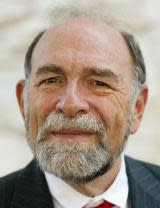The Passover seder recounts events that shape the Jewish consciousness and identity

A week from this coming Wednesday night Jewish families and their guests will gather in their homes, synagogues, or community centers to observe the Passover seder – a combination feast, religious ritual, educational experience and reliving of the series of events that, more than any other, shaped our religious consciousness and identity.
The seder for Jews today is probably the most widely observed and the most beloved of religious rituals. We will drink four cups of wine (or grape juice) to celebrate the fulfillment of God’s promises of redemption, eat a multi-course meal, and read from the Haggadah, a text whose name means “telling” and which narrates the story of the Exodus, our people’s liberation from bondage some 3,000 years ago. The seder is a time of family fellowship and togetherness, and it is intended primarily to instruct our young people in fulfillment of the Torah’s command, “you shall tell your child in that day, saying, ‘this is because of what the Lord did for me, when I departed from Egypt’” (Exodus 13:8). The rabbis of old stressed the importance of evoking children’s curiosity about the ways that the seder night differs from all other family meals and of tailoring the story to match each child’s capacity to understand.
The events we commemorate hark back to ancient times, and even the basic outline of the seder ritual (designed after the destruction of the Jerusalem Temple to substitute for the offering of the Passover sacrifice) is close to 2,000 years old. The lessons that are taught in the Passover story, however, still resonate with us all these many years later. Freedom is to be cherished and not to be lightly cast aside for our personal security or for promises of national glory or prosperity made by a would-be authoritarian. The enslavement suffered by the Israelites in Egypt was physical – harsh labor in the fields and in the construction of warehouses and store cities for Pharaoh, but it is possible as well to be shackled spiritually to superstition, to ignorance, to the force of habit, or to addiction. The story that the Haggadah tells is not the final culmination of humankind’s redemption, but it is worthy of celebration because it is a source of hope that justice, freedom, and human dignity can prevail over oppression and exploitation.
More:Sacred writings should not be weaponized to condemn people who believe or live differently
At the seder, we eat the matzah, the unleavened bread consumed by the Israelites during their hasty flight to freedom before we sample the bitter herbs that symbolize the harshness of the slavery they had endured. It has been suggested that this reversal of the time sequence of events is meant to teach us that the people did not fully perceive the bitterness of their servitude until they had tasted freedom. I would offer an additional reason, that, even when we are personally enjoying freedom and the opportunity to flourish, it is incumbent on us to remember what we (or our ancestors) suffered, in order that we might empathize with those whose present-day lot in life is bitter. The Torah mentions numerous times the commandment to love the stranger and to refrain from oppressing him or her, “because you were strangers in the land of Egypt” (e.g., Leviticus 19:33-34).
Our modern counterparts to the “stranger” mentioned by scripture are those among us who are marginalized, disdained, made scapegoats of, or oppressed because of their race, faith, nationality, gender, or sexual orientation. Authoritarianism, oppression, persecution, and violence targeting those who are different exist today in numerous places around the world. In our own country as well, hatred and divisiveness plague our public and communal life and threaten those who are vulnerable because they are seen as aliens and as strangers.
We and our society ignore at our own peril the seder’s lessons; we pray that the glimmer of hope afforded by the Haggadah’s story might sustain us and that we might realize more fully the promises of future redemption implicit in its narrative.
Rabbi Barry Marks is rabbi emeritus of Temple Israel in Springfield.
This article originally appeared on State Journal-Register: Jews will commemorate liberation from slavery during Passover seder
